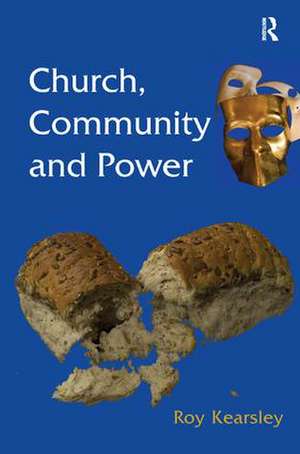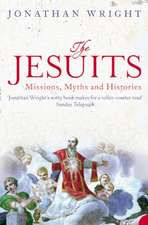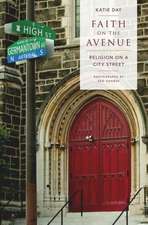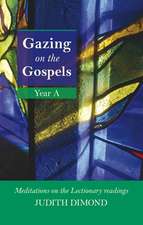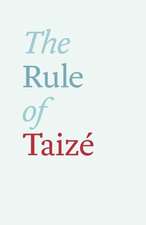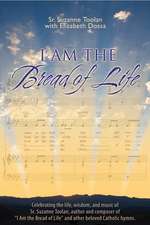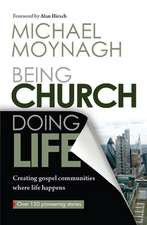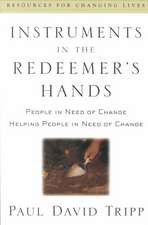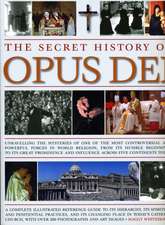Church, Community and Power
Autor Roy Kearsleyen Limba Engleză Hardback – 9 ian 2009
| Toate formatele și edițiile | Preț | Express |
|---|---|---|
| Paperback (1) | 469.34 lei 6-8 săpt. | |
| Taylor & Francis – 19 dec 2018 | 469.34 lei 6-8 săpt. | |
| Hardback (1) | 1054.71 lei 6-8 săpt. | |
| Taylor & Francis – 9 ian 2009 | 1054.71 lei 6-8 săpt. |
Preț: 1054.71 lei
Preț vechi: 1286.24 lei
-18% Nou
Puncte Express: 1582
Preț estimativ în valută:
201.82€ • 210.30$ • 167.11£
201.82€ • 210.30$ • 167.11£
Carte tipărită la comandă
Livrare economică 03-17 aprilie
Preluare comenzi: 021 569.72.76
Specificații
ISBN-13: 9780754663454
ISBN-10: 0754663450
Pagini: 260
Dimensiuni: 156 x 234 x 16 mm
Greutate: 0.45 kg
Ediția:1
Editura: Taylor & Francis
Colecția Routledge
Locul publicării:Oxford, United Kingdom
ISBN-10: 0754663450
Pagini: 260
Dimensiuni: 156 x 234 x 16 mm
Greutate: 0.45 kg
Ediția:1
Editura: Taylor & Francis
Colecția Routledge
Locul publicării:Oxford, United Kingdom
Cuprins
Contents: Introduction: church as community in the presence of power; Church as a koinonia. The fellowship of the way; The contested concept. What is power?; Church and the environment of power; 'Power relations' and church; Strategies, church and freedom; Spirit, power and weakness; Power, authority and community; Twin problems on power and church; Conclusion: power in the future of koinonia community; Bibliography; Index.
Recenzii
'Roy Kearsley tackles a neglected but important problem - that of power dynamics in Christian communities. Drawing upon an impressive range of secular and theological resources, he offers an analysis of how relations of power should be understood and handled within the church. An honest and perceptive appraisal of the issues, this work will repay study by theologians and church leaders.' David Fergusson, University of Edinburgh, UK Roy Kearsley’s treatment of power and authority in the church is penetrating and incisive. He has a remarkable skill in correlating his knowledge of the New Testament and of post-modern thinkers such as Foucault. This book challenges any easy assumptions about how churches handle their belief in servant ministry, and also explores whether the concept of divine omnipotence can withstand the hermeneutic of suspicion in contemporary society. It is a lively book which manages to be both readable and scholarly. I recommend it with enthusiasm. Peter Sedgwick, Principal, St Michael's College, Llandaff, Cardiff ’... a fascinating and scholarly work which requires careful reading. It is a rewarding book and certainly fulfils Kearsley’s aim of ’expos[ing] and inspect[ing] the subtlety and complexity of power as a concept’ (p.11). He demonstrates that simple definitions of power are unhelpful when power pervades every group and relation and that, without due attention, power in church, like any community, can be very destructive.’ Regent's Review ’The discussions about church, freedom, authority and community try to elucidate the problems which result from power abuse in the church. ... This book is not only relevant, but it is also very important because the power issue is one of the most neglected topics in the church. ... The book stresses the value of introspection for the church as it helps the church to look for ways in which to avoid possible abuse of power.’ Studia Historiae Eccleciasticae 'What is particularly valuable
Notă biografică
Roy Kearsley has spent the last nine years teaching theology at Cardiff University and South Wales Baptist College. He has published in early Christianity (Tertullian's Theology of Divine Power (1998)) focusing on the specialist field of 'power', a project which helped to spark research for this book.
Descriere
In the era of 'post-Christendom', how can church as a sociological reality be switched on to the destructive dangers, yet constructive possibilities, of 'power' flowing in and around its community? Attuned to the current distrust of church power, this book creatively works out responses that could turn painful censure into a re-visioning of church power relations, helped by neglected critical studies. The approach exposes a complexity to power, and filters that insight into a theology of church. Much attention is paid in the book to the relevance to a religious community of post-modern philosopher Michel Foucault and of recent feminism. The topic of power has universal importance in the study of religion, though the response to analysis and critique in this book is drawn specifically from Christian sources. Kearsley concludes with an exploration for a future renovated, self-critical, authentic and growing community, sensitive to power while remaining in line with classic Christianity.
